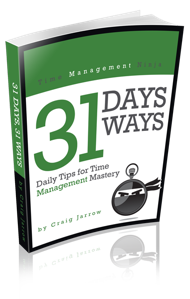
You are sitting in at your desk. Perhaps, you are meeting with someone or working on an important project.
Your desk phone rings and you do not answer because you are busy.
What happens next?
10 seconds later, you cell phone rings. You silence that, too.
Finally, you get a text message, “Are you available?”
Well, no. That was why I didn’t answer my phone… twice!
Don’t Knock Twice
In our busy fast paced world, we are often guilty of over-communicating. And even causing unnecessary interruptions.
Why call someone if you need them to review a document by next week? Better to send the document via email and make them aware of the deadline.
Why text message someone if you do not need an immediate response? Did you really need to make their phone beep during that meeting?
Often, it is about picking the right form of communication. When you do, you reduce the effort on your part and minimize the interruption on the other side.
Any of these sound familiar?
- Do your co-workers call you to ask if you got the email they just sent you?
- Do you get unnecessarily interrupted by text messages about issues that could have waited?
- Do people knock on closed office or meeting doors for something that was not urgent? (Oh, just seeing if you were busy…)
- Do you receive multiple messages on the same topic? VM at your desk. Cell Phone. Email.
There is a time and place for urgent, even interrupting communication. However, most of the time it is not necessary. And unfortunately, we have given people the power to “ring us” anywhere and anytime they want.
TMN’s 8 Rules of Communication
The problem with these communication behaviors is that the person perpetrating them is wasting their own time, as well as that of the person they are trying to contact.
So, here are “TMN’s 8 Rules of Communication” to help improve contact and reduce interruptions:
- 1 – Don’t Knock More Than Once – Don’t email and then call to see if I got it. Don’t call multiple phones without leaving a message. Have the discipline to consider what is the most appropriate means of communication for the topic at hand. Then use that one method. Don’t knock on multiple doors. It wastes your time and interrupts the person you are trying to reach.
- 2 – Set expectations – If your colleagues and co-workers know what to expect, they can better utilize the available methods of communication. Set the expectation that you will not answer your phone if you are busy. That you will get back to them if they leave a message. (BTW, if you set the expectation that you will not return VM or email… then expect extra knocking on all of your “doors.”)
- 3 – Limit your Doors – This seems like a simple one. But, if you do not need multiple phones, emails, Skype, text, and IM… then get rid of the extra ones. (This is related to “Too Many Mailboxes“) By limiting your access points to a reasonable amount, it allows you to better manage them.
- 4 – Always Leave a Message – If you make a call and find yourself not leaving a message, you might need to question if the phone was needed in the first place. Was the item time urgent? Or would it have been better served via email? ALWAYS leave a message. If you are picking the right priority of communication, then let the person get back to you when they are able.
- 5 – Use Technology – In today’s high tech world, take advantage of technology to manage your incoming communication. Many people use “Google Voice“or other services to manage multiple phones into one voicemail box. You can also find services that will transcribe your VM into text/email. I am a big believer in the “visual voicemail” feature on the iPhone. It allows me to instantly access VM in any order.
- 6- Don’t Call If It’s Not Urgent – Once upon a time, the phone was one of the only means we had to “reach out to someone.” Today, we have many methods of varying priority levels. Don’t call someone, and potentially interrupt, if the need is better served by email, etc.
- 7 – Don’t Leave Timebombs – The opposite of the previous rule is also true. Don’t leave a timebomb, (i.e. an urgent item), in my email. In other words, don’t send me something that is due in 2 hours via email. Call me. Don’t send me a meeting invite within hours of the appointment time. If they need to know about it now, make sure they know about it now.
- 8 – Accept That People Will be Inaccessible Sometimes – Somewhere along the line, we were lead to believe that people should be reachable at all times. Maybe that came from the initial infatuation with the cell phone, or from some misguided HR “Open Door” policy. But, just as you want to be able to get things done without interruption, you have to expect that there will be times that you cannot immediately reach someone. This is the balance required that allows us to use technology to work anywhere and anytime… but not all the time.
What About You?
Do you practice these common sense communication tips?
By adhering to some standard practices, you can improve your productivity and that of the people you are trying to reach. You will also reduce interruptions and frustration on both ends.
Does your workplace practice effective communication? What are your best tips and examples?
Related Posts:
6 Tips to Free Yourself From Your Technology Leash
 I am the author of Time Management Ninja and help individuals and companies reclaim their time to be more productive. As well, I am the author of the book
I am the author of Time Management Ninja and help individuals and companies reclaim their time to be more productive. As well, I am the author of the book 

This is ironic today as I check my email & voicemails to read/listen to the same messages from all the same people….I emphasize my email as a good place to leave me messages “for things you forgot to tell me after our meeting”. Then I can deal with it at my pace. Good reminders not to do it to others!
good list, I definitely agree; especially concerning the difference between phone and email
Great list! As an organizer, I tell my clients to do these kinds of things, BUT some of them respond with a “but..yeah.” Then I remind them of what they just said about getting interrupted and not getting things done. I am a big believer in NOT sending something urgent on e-mail. I tell my clients here at the hospital that urgent issues should be a phone call, a page or an in-person appearance.
Ah, common sense. So refreshing these days ~ thanks for reminding the dopes who don’t already know this stuff… (YouMail dot com is one of the services that will transcribe your VM for you.)
Your post titles are intriguing (therefore, well written) so I’ll be back for more ~ thanks! (And thanks to @ChrisBrogan for pointing me here, if you’re tracking that sorta thing.)
~GirlPie
I think it’s important to let people know your preferred form of communication. I hate phone calls, so I don’t even have my phone # on my business card. If someone specifically asks for it, I will give it out, but let them know that it is faster to reach me by email.